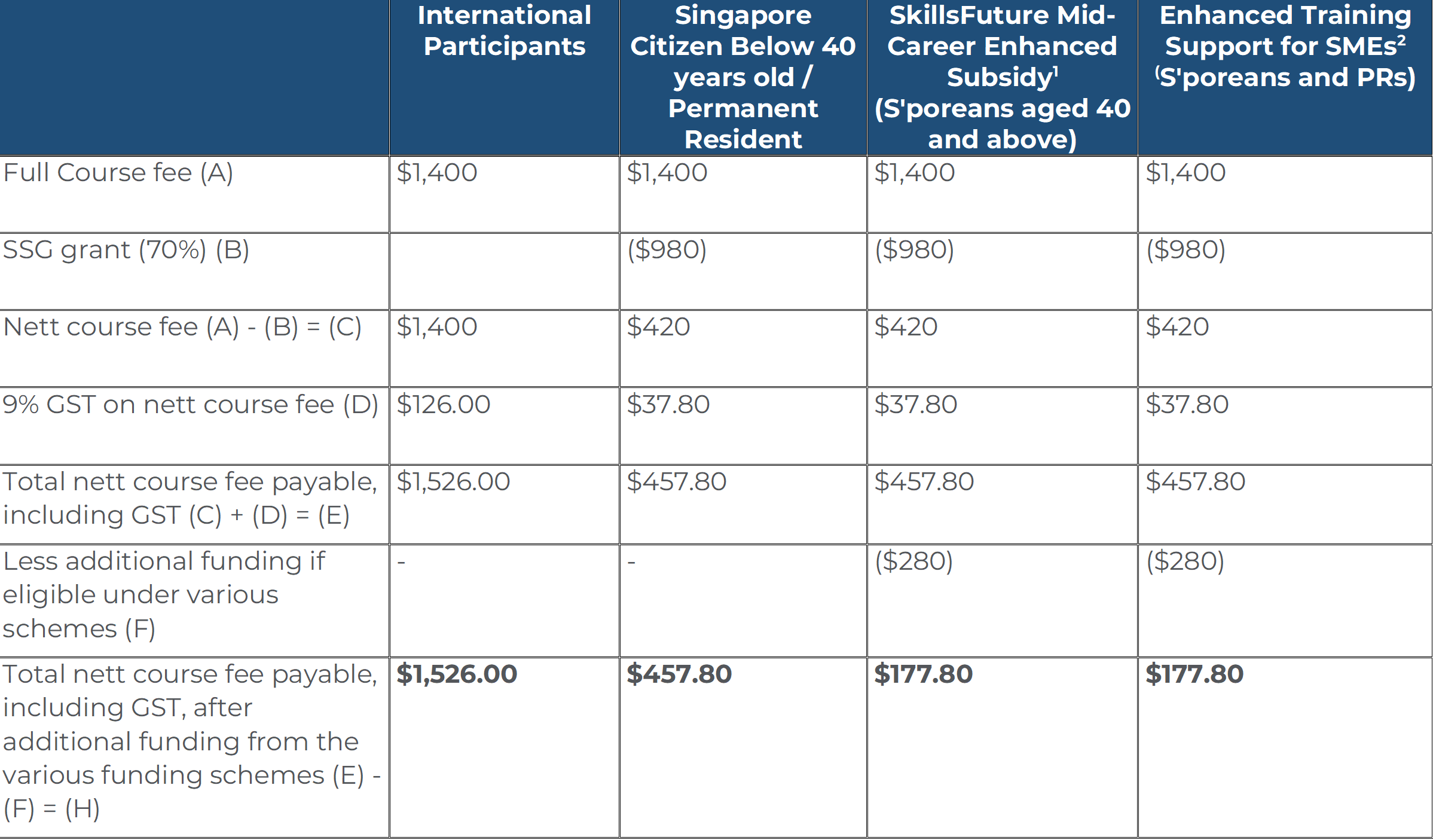Dates: 4 & 5 June, 5 & 6 November 2024
Duration: 2 days
Level: Intermediate
Venue: Singapore University of Social Sciences
Corporate governance, the all-encompassing mechanism that imparts integrity, ethics, transparency, accountability, and culture, will ultimately steer an organization towards achieving long-term success and longevity. Robust governance arrangements include establishing a clear organizational structure, well-defined lines of responsibility, effective risk management processes, control mechanisms, and remuneration policies. The past few decades have proven that, in practice, these arrangements have fallen short of ethical business standards and have incentivised short-term thinking.
Multiple corporate actions and publications prove that there is a significant movement towards aligning the interests of the company with the interests of society. This shift has encouraged organizations to focus on a longer time horizon that will account for environmental, social, and governance (ESG) related risks and opportunities.
This course will impart the latest corporate governance practices that account for ESG considerations.
This course is a collaborative effort with Deloitte.
Entrepreneurs, business owners, C-suites, directors, function heads, senior managers, managers, sustainability consultants, financial consultants, operations manager, ethics manager/compliance manager, HR manager, etc.
- Defining Corporate Governance
- Relevance of Corporate Governance in the Asian Context
- Decoding the Singapore Code of Corporate Governance
- Corporate Governance and Risk Management
- Governance for Value Creation
- Types of Governance Mechanism
- When to Employ Governance Mechanism
- Applying Corporate Governance in Strategy Risk Management
- Integrating Corporate Governance and Sustainability Principles
- Transition and Succession for continuity
- Applying Corporate Governance and Governance Principles for the Next Generation Leader
- Future of Corporate Governance
A. Knowledge and Understanding (Theory Component)
By the end of this course, participants should be able to:
- Examine the fundamentals and purpose of corporate governance and its importance to a sustainable business
- Distinguish that corporate governance is a concept that can be adopted regardless of size and maturity of the organisation, by all levels within it
- Illustrate the role of corporate governance in managing stakeholders in the Asian context
- Compare the roles of the Board, Chairman, and CEO based on the Singapore Code of Corporate Governance
B. Key Skills (Practical Component)
By the end of this course, participants should be able to:
- Appraise the appropriate governance structure relevant to respective businesses
- Design sound corporate governance practices within their businesses
- Evaluate risk management sustainability and sustainability principles in business strategic planning
| Time | Agenda |
|---|
| Day 1 |
| 09:00 - 09:30 | Course overview |
| 09:30 - 10:15 | Defining Corporate Governance |
| 10:15 - 10:30 | Break |
| 10:30 - 11:15 | Relevance of Corporate Governance in the Asian Context |
| 11:15 - 12:30 | Decoding the Singapore Code of Corporate Governance |
| 12:30 - 13:30 | Lunch |
| 13:30 - 14:45 | Corporate Governance and Risk Management |
| 14:45 - 15:45 | Governance for Value Creation |
| 15:45 - 16:00 | Break |
| 16:00 - 17:30 | Types of Governance Mechanism |
| Day 2 |
| 09:00 - 10:00 | When to Employ Governance Mechanism |
| 10:00 - 11:00 | Applying Corporate Governance in Strategy Risk Management |
| 11:00 - 11:15 | Break |
| 11:15 - 12:15 | Integrating Corporate Governance and Sustainability Principles |
| 12:15 - 13:15 | Lunch |
| 13:15 - 14:30 | Transition and Succession for continuity |
| 14:30 - 15:45 | Applying Corporate Governance and Governance Principles for the Next Generation Leader |
| 15:45 - 16:00 | Break |
| 16:00 - 17:30 | Future of Corporate Governance |
| 17:30 - 18:30 | Assessment - Quiz |
- Attendees should have a basic understanding of environmental ecosystem.
- Have good English proficiency.
- Possess basic information and communication technology (ICT) skills.
- Possess basic understanding on climate change.
- Be able to source and analyse relevant materials from the workplace, library, internet or online databases for information on climate change.
 Kamlesh Ramchand
Kamlesh Ramchand
Kamlesh Ramchand is a vibrant business leader with rich experience and success in directing core management activities, backed by leadership positions held with the Singapore Police Force, DoCoMo interTouch, and various other private organizations. He has established himself as a natural leader, with the ability to drive bottom line accountability and sustain business growth in a constantly changing, fast-paced environment. Through the years, Kamlesh has developed proficiency in leading people at all professional levels, improving team capabilities, and developing strategic action plans.
Kamlesh graduated with a Bachelor of Accountancy from NTU, holds an MBA in Strategic Management and internationally recognized certifications in Adult Learning, Physical Security, Business Continuity Management as well Project Management.
Please submit the following documents to cet@suss.edu.sg:
- Coloured copy (back and front) of NRIC for Singaporeans and PRs, or "Employment"/"S" Pass for foreign applicant
- Application form
Course Fee

1 Mid-Career Enhanced Subsidy: Singaporeans aged 40 and above may enjoy subsidies up to 90% of the course fees.
2 Enhanced Training Support for SMEs: SME-sponsored employees (Singaporean Citizens and PRs) aged 21 and above may enjoy subsidies up to 90% of the course fees.
- Participants are required to achieve at least 75% attendance and pass any prescribed examinations/assessments or submit any course/project work (if any) under the course requirement.
- Participants are required to complete all surveys and feedbacks related to the course.
- The course fees are reviewed annually and may be revised. The University reserves the right to adjust the course fees without prior notice.
- Singapore University of Social Sciences reserves the right to amend and/or revise the above schedule without prior notice.
For clarification, please contact the SUSS Academy via the following:
Telephone: +65 6248 0263
Email:
CET@suss.edu.sg